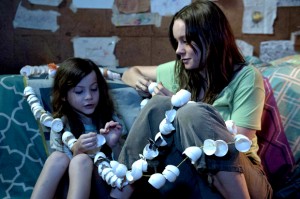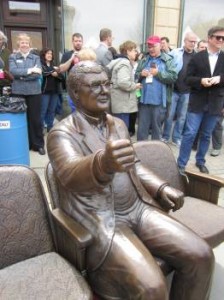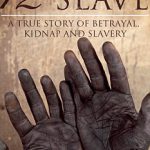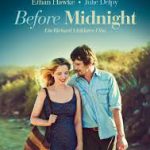Room
Posted on October 15, 2015 at 5:50 pm

Jack (Jacob Tremblay) wakes up on his fifth birthday and says hello to everything in his world. Through his eyes, and his narration, we gradually come to understand that his world is so entirely circumscribed by the walls of his tiny home that no definite or indefinite articles are needed. There is only one of everything, and everything means very little.
Where Jack and his mother, Ma (Oscar winner Brie Larson) live is just called “Room.” And anything outside of Room, the world Jack glimpses in the flickers of a broken down television, is, his mother tells him, just pretend. Their entire world is contained in Room, and anything they have is brought to them by a gruff-voiced man they call Old Nick (Sean Bridgers). When he comes to Room, opening the locked door whose combination Ma is not allowed to know, Jack hides in Wardrobe until he is gone.
It is only gradually that we come to understand what Jack still does not see. Ma was a teenager when Old Nick captured her and locked her in the shed behind his house so he could rape her and keep her there as his prisoner. She became pregnant with Jack two years later.
Keeping Jack safe and happy is what has kept her from despair. As horrifying as her circumstances are, they have enabled her to maintain a sense of control over Jack’s world that helps her through the absence of control she feels, having to cajole Old Nick for even the smallest accommodation and with no way to escape or contact her family.
But she cannot control Jack’s getting older, challenging her authority, and wanting to know more about what is really happening. That means he may be getting old enough to help her with a daring plan of escape.
Irish writer Emma Donoghue wrote the screenplay, adapted from her book. While it was inspired in part by a real-life case, this is not a true crime story or a woman in jeopardy thriller. Like the post-apocalyptic “The Road,” this is a heightened dramatic exploration of universal experiences all parents — and children of parents — struggle with: the challenges of setting boundaries in an ever-shifting relationship and balancing the need for protection with the need for independence.
And that is why Ma’s greatest challenge comes after the escape. It is surreal to be back in the bedroom she left as a teenager, with her parents who are both the same and different. At first, Jack is terrified. Ma is numb. Everything outside of Room has to be re-evaluated and re-negotiated. Issues of identity, control, separation, boundaries, and what parents and children owe each other are sensitively explored. Larson is one of the finest young actors making movies today and her interaction with the gifted Tremblay is natural, fiercely devoted, and deeply moving.
Parents should know that this movie deals with abduction, rape, and abuse. While they are portrayed sensitively, the material is disturbing. The movie includes strong language, tense scenes, and a suicide attempt.
Family discussion: How was going home different from what Ma expected? How did Ma and Jack differ in their reactions to the escape? Why didn’t Ma’s father want to look at Jack?
If you like this, try: another magnificent performance by Brie Larson in “Short Term 12”











